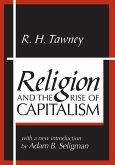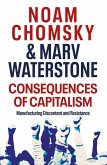Getting Past Capitalism begins with a critique of the impacts of capitalism on human society and the environment. It looks in new ways at what capitalism is and at how it is reproduced. That investigation opens the door to fresh ways of looking at how to challenge it. Cynthia Kaufman looks at some fundamental questions about how capitalism comes to look like a system that is unbeatable, and how people come to have desires that work to reinforce capitalism. Kaufman uses this analysis to develop ideas about how to challenge capitalism. She argues that rather than looking for the fulcrum point in a system that will make it able to be overthrown, we should try to understand what kinds of practices open more spaces for stopping the reproduction of capitalist processes, and what kinds of structures need to be developed to make capitalism a less important part of our world. Getting Past Capitalism includes a critique of capitalism and presentation of alternatives to capitalism, many of which already exist. It explores strategies for developing and strengthening those alternatives.
Bitte wählen Sie Ihr Anliegen aus.
Rechnungen
Retourenschein anfordern
Bestellstatus
Storno









